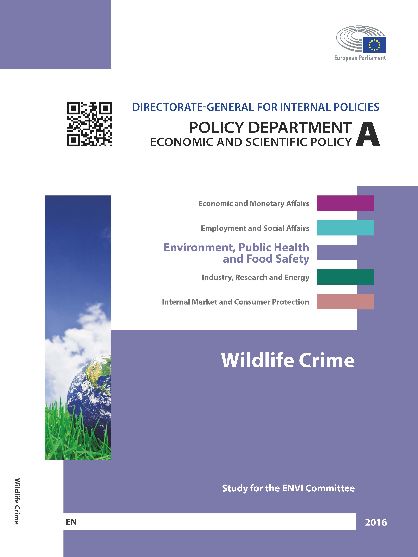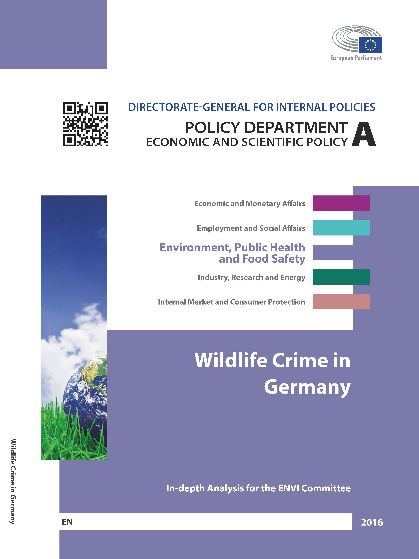Wildlife crime is no longer an emerging issue, but has established itself as a serious threat to biodiversity and sustainable development. In the period between 2010 and 2012 alone, for example, 100,000 elephants were killed in Africa for ivory. The EU is both one of the most important markets for illegal wildlife products and an important actor in the fight against wildlife crime. As such, Ecologic Institute coordinated a study on wildlife crime which was commissioned by the European Parliament. Further project partners were the Institute for European Environmental Policy (IEEP), the Institute for Environmental Studies (IVM), the University of South Wales (Jennifer Maher), Ragnild Sollund from the University of Oslo, Teresa Fajardo del Castillo from the University of Granada and Tanya Wyatt from Northumbria University.
The objective of the study was to provide Members of the European Parliament with a systematic overview of the state of wildlife crime in Europe, and to allow Members of the ENVI Committee to establish its own view of the subject and the potential role of the EU, including the potential added value of the upcoming EU Action Plan on wildlife crime.
The study consisted of an introduction to the UN CITES framework and the EU legislation on wildlife crime, followed by a review of academic and official literature on wildlife crime covering the following aspects:
- Illegal wildlife trade in the EU
- Organised criminal groups operating in this trade
- Links to money laundering
- Law enforcement in the EU
- Best practice examples of regional cooperation on wildlife crime in the EU
To the extent that relevant information is lacking, the consortium aimed at collecting such data through a methodological approach including an online survey among relevant authorities of EU Member States, a review of selected official reports and statistics, and an in-depth analysis including interviews for five selected Member States.
In the final stage of the study, the consortium drew conclusions and elaborate policy recommendations for the European Parliament to take into account when developing the EU Action Plan on wildlife crime.





